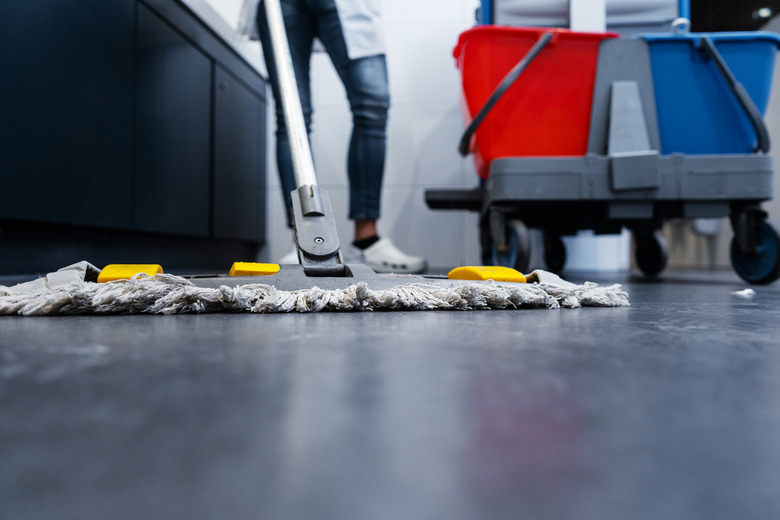This Cleaning Chemical Reaction Just Killed At Buffalo Wild Wings Manager
Tragedy struck a Buffalo Wild Wings restaurant in Massachusetts last week, when a general manager died and at least 11 other people were hospitalized after an employee combined two cleaning products that should never be used together.
The two products were relatively common: one was chlorine and bleach-based Super 8, and the other was the acid-based Scale Kleen. According to a report from NBC News, an employee poured the Super 8 to clean the floor before the dinner rush, not knowing that someone had used Scale Kleen on the floor earlier.
The mixture quickly released toxic fumes, turned green and started to bubble. The 32-year-old manager, Ryan Baldera, tried to get rid of the concoction by using a Squeegee to mop it into an outdoor drain. But the fumes quickly overcame him, and he died later in a local hospital. People created a GoFundMe page to help the new wife and 3-month-old son he left behind.
The strong odors began to affect other employees as well as restaurant patrons, and many poured out of the building. Some later checked into the hospital with symptoms including difficulty breathing and burning sensations in their eyes, but no one else died as a result of the accident.
Safety officials worked to decontaminate the restaurant with a neutralizer, and the restaurant opened again a few days later.
Cleaning Can Kill?!
Cleaning Can Kill?!
Yes! Acid and chlorine bleach are both powerful cleaning agents that can work wonders when it comes to removing unwanted bacteria and dirt. They're especially useful in restaurants and other food facilities, to minimize the spread of foodborne illness.
But they can never be used together. The active ingredient in chlorine bleach is sodium hypochlorite. When it mixes with acid-based cleaning products such as rust removers, toilet bowl cleaners, mold removers, vinegar and drain cleaners, the two can create a reaction that results in toxic fumes. Those fumes can lead to symptoms including dizziness, respiratory issues, coughing, burning eyes and, as they learned at the Buffalo Wild Wings, even death.
Knowing Your Rights
Knowing Your Rights
Most cleaning products are clearly labeled both with their active ingredients and warnings about potentially dangerous pairings. But who reads labels? And what if someone uses a product without your knowledge? Accidents can happen, which is why it's important to arm yourself with as much knowledge as possible when it comes to cleaning products.
It's also important to know your rights. Authorities are pretty sure that what happened at Buffalo Wild Wings was a complete accident. But it's a reminder of the ways you can take measures to avoid such accidents in your own workplaces. You can plug any chemical you are using at your job into this online Safety Data Sheets database to figure out how to use it safely and effectively. It's the manager's job to make sure that regulations are in place, such as documenting when you use a chlorine bleach-based product so that other workers know to avoid using an acid-based one later. Be sure to follow their regulations, even when it seems like extra hassle – the rules are there for good reason.
But if you ever feel that your manager isn't enforcing those procedures, isn't responding to your requests to eliminate potential hazards or is asking you to do something that you believe could pose a threat, you have every right under OSHA laws to refuse that unsafe work.
Accidents will always happen. But by learning more about safety guidelines and your rights as a worker, you have the power to prevent many of them going forward.
Cite This Article
MLA
Dragani, Rachelle. "This Cleaning Chemical Reaction Just Killed At Buffalo Wild Wings Manager" sciencing.com, https://www.sciencing.com/chemical-mixing-danger-13723061/. 15 November 2019.
APA
Dragani, Rachelle. (2019, November 15). This Cleaning Chemical Reaction Just Killed At Buffalo Wild Wings Manager. sciencing.com. Retrieved from https://www.sciencing.com/chemical-mixing-danger-13723061/
Chicago
Dragani, Rachelle. This Cleaning Chemical Reaction Just Killed At Buffalo Wild Wings Manager last modified August 30, 2022. https://www.sciencing.com/chemical-mixing-danger-13723061/
